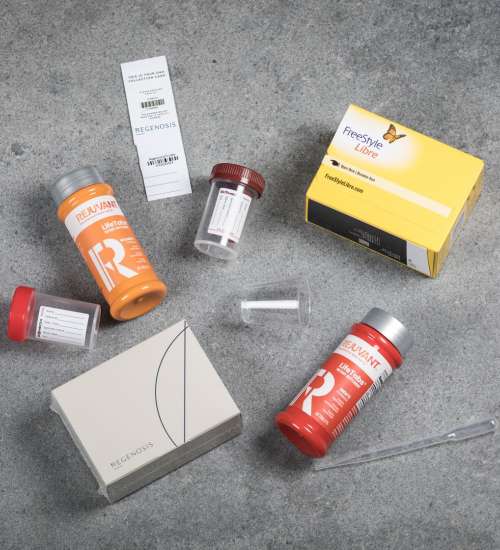No matter how busy you are or how healthy you feel, it’s important to always keep your health in check. Many diseases often have no symptoms in their early stages. If left undetected or detected late, the disease may have progressed to a more advanced stage, possibly leading to devastating consequences.
Taking a proactive approach to go for regular health screenings allows us to identify potential problems early and take the necessary steps to prevent or manage illnesses. By optimizing our health and wellness, we can age gracefully and spend more time focusing on the things that really matter: Meaningful work and career, spending time with loved ones, and looking forward to life’s many milestone celebrations.
The Ministry of Health recommends that health screening is beneficial from the age of 18 onwards. The frequency or interval of each type of screening test depends on the specific test in question. Generally, tests should be monitored more prudently as we get older, as abnormal results may start to appear, eventually leading to chronic issues like diabetes and high cholesterol.
So, what are the various health checks and exams that men over 40 should be doing?
(Related: Addressing 3 common male health conditions)
OBESITY
Body mass index (BMI) and waist circumference measurements should be done annually to screen for obesity from the age of 18 onwards. Obesity can lead to many medical conditions like diabetes, hypertension, cardiovascular disease, and several cancers. A healthy BMI is accepted as between 18.5 to 25.
HYPERTENSION
If you are 40 years or older, you should check your blood pressure at least once a year to screen for hypertension. You are considered to have hypertension if your readings are consistently high, i.e. systolic blood pressure of 140mmHg or higher, or diastolic blood pressure of 90mmHg or higher.
Hypertension may sometimes go unnoticed until complications like heart or kidney failure set in. These complications can be prevented with early detection and treatment.
DIABETES
You can be screened for diabetes by undergoing a fasting blood glucose test. Diabetes causes elevated blood glucose levels, which may lead to damage of various organs, such as the eyes, heart, and kidneys.
HIGH CHOLESTEROL
A blood cholesterol profile tests for different types of fats present in the body. These include:
- Low-density lipoprotein (LDL, also known as “bad”) cholesterol
- High-density lipoprotein (HDL, also known as “good”) cholesterol
- Triglycerides
Elevated or uncontrolled cholesterol levels can lead to atherosclerosis (plaque build-up in the arteries) over time, and increases the risk of developing cardiovascular disease.
COLORECTAL CANCER
Colorectal cancer is the most common cancer among men and women in Singapore. As colorectal cancer rates in people younger than 50 have been rising, experts now recommend screening to begin at age 45 (the prior recommendation was to start at age 50 if you are at average risk of developing colorectal cancer).
A faecal occult blood test is usually done to check for the presence of blood in the stool. If the result is positive, you may have to follow up with a colonoscopy. Colonoscopy is considered the gold standard for colorectal cancer screening as it allows for direct visualisation of the entire colon. You may also opt to directly undergo a colonoscopy, even without a prior stool test.
PROSTATE CANCER
Prostate cancer is the second most common cancer among Singaporean men, and those who are at average risk can start regular screenings from age 50. Men with a family history of breast cancer should start screening from age 40, while those with a family history of prostate cancer should start screening from age 45.
A digital rectal examination is a quick and reliable clinical test of the prostate gland. It involves your doctor inserting a gloved finger through the rectum to feel the prostate for any abnormal lumps.
A blood test can be performed to measure prostate-specific antigen (PSA), which is secreted by the prostate gland. Elevated PSA levels may indicate cancer.
TESTICULAR CANCER
Testicular cancer represents only about 1-2% of all cancers in men worldwide, but the incidence rate has been steadily increasing over the past few decades in Singapore. It occurs predominantly in younger males in the age range of 20s to 40s.
Like women, who should be performing monthly breast self-examinations for breast lumps, men should also be conducting monthly self-examinations for lumps in the testicles.
Blood tests can be performed to measure the following tumour markers: Alpha-fetoprotein, beta-human chorionic gonadotropin ,and lactate dehydrogenase.
LOW TESTOSTERONE
Nearly 25% of men between the ages of 60 to 69, and almost half of those aged 70 to 79 experience moderate or severe sexual problems, including erectile dysfunction. Although chronic conditions and the medications that treat them often play a part, decreasing hormone levels can also play a major role.
Starting at approximately age 40, levels of testosterone (the primary male sex hormone) decline by about 1% annually. When testosterone levels get too low, it can lead to testosterone deficiency syndrome and cause symptoms, such as low or complete loss of libido, erectile dysfunction, poor energy levels, and loss of muscle mass.
Where indicated, a blood testosterone profile can be performed to assess a man’s testosterone levels, along with several other hormones closely related to testosterone.
IMMUNISATION
By the age of 40, some of the vaccinations done earlier in life may no longer be effective. Blood tests can be performed to check on the status of your antibodies and do booster shots if necessary.
Dr. Edwin Ong has 10 years of experience working as a physician. He holds the qualifications of Bachelor of Medicine & Bachelor of Surgery, and Graduate Diploma in Family Medicine. He is a member of College of Family Physicians Singapore and Society of Men’s Health Singapore. He is also the founder of RMDY Clinic, a medical and wellness clinic in Singapore that focuses on preventive healthcare through holistic and integrative solutions that encompass lifestyle, dietary, and medical considerations.







.jpeg&w=500&h=550&crop-to-fit)


 Back
Back
